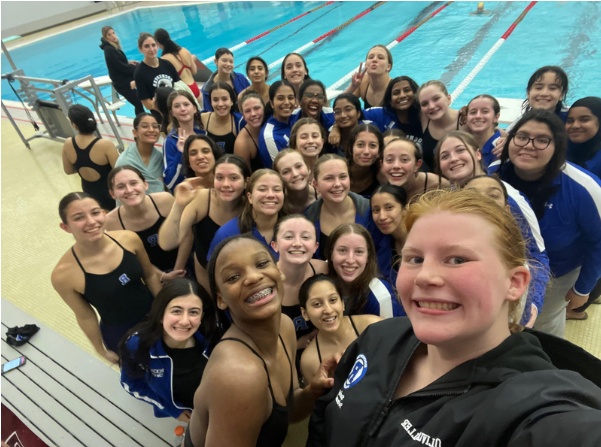The perks of taking an AP Class
Why Students Should Strongly Consider Advanced Placement Classes

January 30, 2018
Often, students are afraid of the stereotypes that surround AP classes. They are known to give mounds of homework and drop a student’s grade significantly. However, this is not often a reality of this kind of class.
As a student currently in APUSH, I can give a million reasons to take the class. When I was starting the school year, I was overwhelmed by the prospect of taking an AP course. Now, halfway through the year, I know that it is one of the best decisions I could have made academically.
There are so many reasons that taking an AP class will help students throughout their high school and college careers.
One of the most major benefits of taking Advanced Placement classes is that they help with time management and organization. Often, students will have to take timed assessments which help students to take tests efficiently.
For one thing, taking classes like AP Language and Composition, AP Psychology or AP US History will prepare kids for the SAT and ACT by exposing them to stimulus-based questions, teaching them how to read passages efficiently, and preparing them to write essays.
In addition, they can raise GPAs because they are weighted on a 5.0 scale. Some Ivy League Universities require a GPA above a 4.0, and AP classes are the only way possible to fill that requirement. The Princeton Review even published an article encouraging high schoolers to take AP classes because, “AP Classes can boost your GPA and strengthen your college application.”
Moreover, taking Advanced Placement classes give an adequate challenge for those who pass normal or honors classes easily. For instance, a student who began freshman year with Geometry or a more advanced math class will likely transition into an AP math course before the end of high school. After Pre-calculus, students have the choice of AP Statistics, AP Calculus AB or AP Calculus BC. Many students who are Honors Language Arts 10 are encouraged to take AP Language and Composition and then AP Literature and Composition because they have been preparing for it with the honors classes. What is the point of a student taking honors if they are going to revert to regular language arts in junior year?
To add on to this, taking an AP class is much less stressful than taking the college equivalent after high school. In high school, most APs last the whole year, while college classes typically last only a half or a third of a year. This means that a high schooler has more time to learn and comprehend the material and the teacher can more thoroughly cover difficult topics for the student’s benefit.
Additionally, these classes can be beneficial in terms of winning awards and scholarships. To be a Scholar of Highest Distinction at RHS, one of the requirements is taking at least four AP classes. This helps students become a serious competitor for esteemed colleges such as the University of Michigan. They also become more qualified for scholarships awarded for academia.
Despite what kids earn in the class, it doesn’t count towards their college GPA, and if they pass the AP Exam with a score of a three or higher on a scale of five, they will earn college credit for the class. Select colleges ask for a four or higher on some exams, but a three is sufficient for most post-secondary schools.
Although in high school students/parents have to pay for the AP exam (which is typically around $100), taking the class in high school can save a student thousands of dollars, as the average college course costs about $4,000. This is a huge deal because it is a simple solution to alleviate some of the debt that colleges leaves most kids in after 2 years, 4 years, or more.
Lastly, students can take classes in high school targeted to what they want to major in during college, meaning that they can take less classes in college or spend the credit hours taking classes that interest them.
Overall, there is overwhelming evidence that points students towards taking Advanced Placement classes. They have so many positive effects that could help students in the long run.






